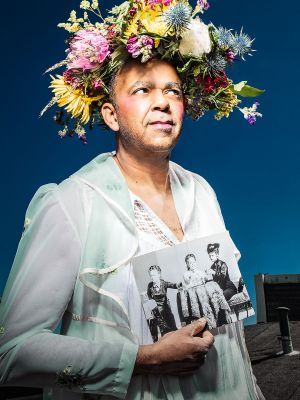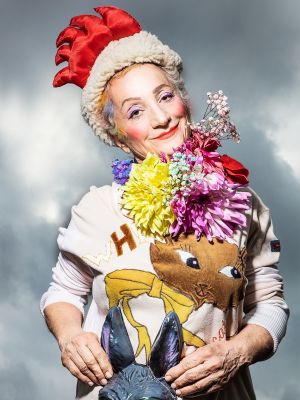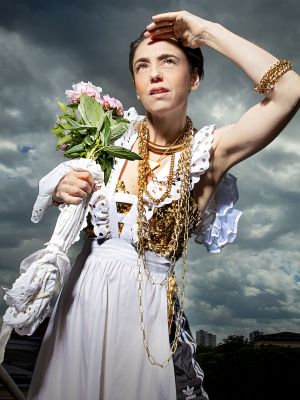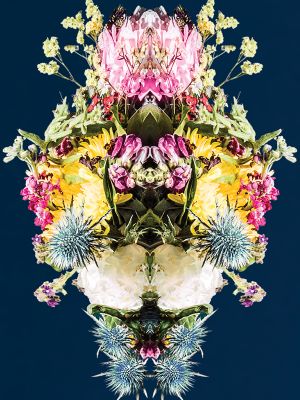In our anniversary month of October, we celebrated the Gorki’s 70th birthday with no less than three premieres, a special birthday party on October 29th and a special birthday offer. We also release a book which takes a look back at the past 9 years of postmigrant theatre at the Gorki!
The Gorki turned 70!
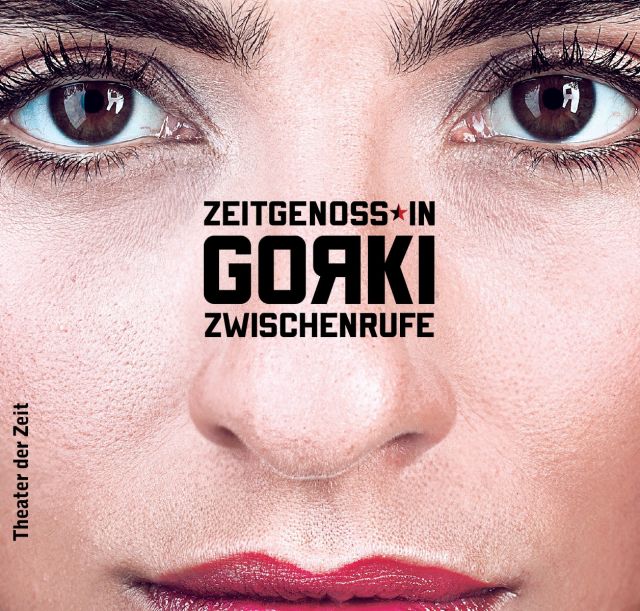
Comrade Gorki - Shout-Outs
The Book for our 70th Anniversary
We thought it would be fun to add together 70 years of Maxim Gorki Theater, soon to be 20 years of post-migrant theatre, nine years of Shermin Langhoff's artistic directorship – that makes 99. That's exactly the number of companions, audience members, friends, artists and creatives we have asked to take their own look at the Gorki and the prehistory of post-migrant theatre with a »shout-out«. After all, every story – including that of our theatre – is a story of many. Only from the interplay of the different perspectives a vivid picture emerges – which will still never be a complete one.
Comrade Gorki is a book of associations – and of good attitude. We let speak people and images: With photographs by Esra Rotthoff in front of the stage, by Ute Langkafel on the stage and by Lutz Knospe behind the scenes.
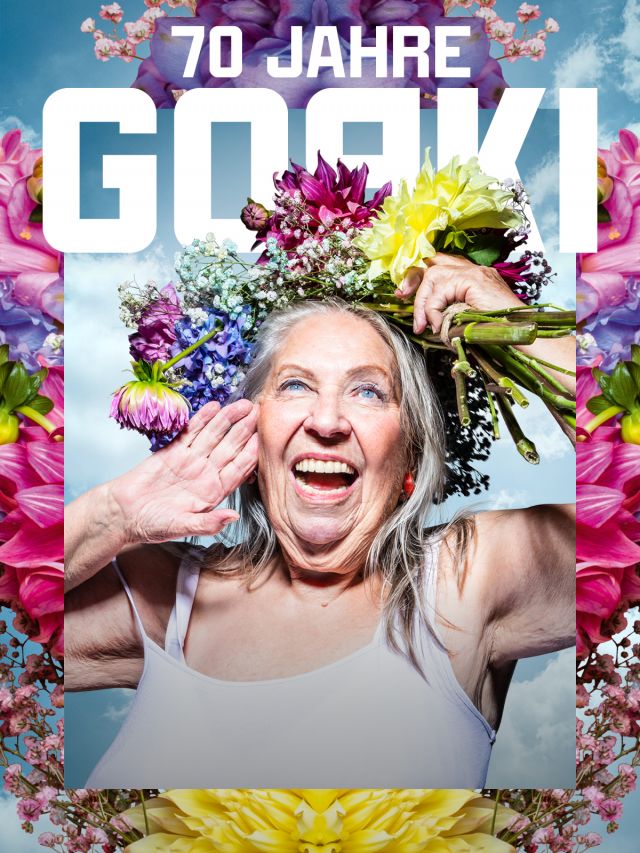
Gorki-Anniversary
The Maxim Gorki Theatre was founded in 1952 as a place for the cultivation of Russian and Soviet theatre, probably also as a consequence of the formalism debates and as a response to Bertolt Brecht’s epic theatre in Berlin. On October 9th, we’re celebrated the premiere of Brecht’s MUTTER COURAGE UND IHRE KINDER (Mother Courage and her Children), in a production on the mainstage directed by Oliver Frljić, resident director and Gorki director in chief. In this, the second part of his »War Trilogy«, which launched with DANTONS TOD / IPHIEGENIE (Danton's Death / Iphigenie), he investigates the interconnections between war, fascism and capitalism. Together with ensemble members Maryam Abu Khaled, Yanina Cerón, Lea Draeger, Kenda Hmeidan, Abak Safaei-Rad and Çiğdem Teke, Frljić analyses the contradictions inherent in every war – including the ones being fought today – and delves into questions of socially ascribed roles, market forces, and the will to survive in times of war.
On October 1st, we started our anniversary month by taking a look back into the theatre’s history – at Thomas Langhoff’s legendary production of Three Sisters by Anton Chekhov. Premiered in 1979, this production, with Monika Lennartz, Ursula Werner and Swetlana Schönfeld in the title roles, struck a nerve with audiences in the GDR because of its presentation of waiting and stagnation, and it became a real hit, running for 157 performances. For the Gorki’s 70th anniversary, director Christian Weise brought DREI SCHWESTERN (Three Sisters) to Studio Я. Weise and an all-male ensemble, Emre Aksızoğlu, Karim Daoud, Tim Freudensprung, Kinan Hmeidan, Oscar Olivo and Falilou Seck, trace – on the basis of the film version from 1984 – the zeitgeist and attitudes toward life of the time.
On October 29th, the Gorki’s real birthday, a conversation with the members of the 1979 production’s original ensemble was held after the performance of DREI SCHWESTERN (Three Sisters).
At 10 pm Gorki actors Vidina Popov, Anastasia Gubareva, Marina Frenk, Daniel Kahn with performed hits from the Gorki repertoire together with the musicians Falk Effenberger and Peer Neumann. And from 11 pm we was hit the dance floor with Sarah Farina and DJ Bariș behind the decks.
On October 8th, the Golden Gorkis are also celebrated a premiere. With ÄTSCH AGE! the 60+ ensemble had created space for old age to dance, sing, tell stories, make music and revolt.
